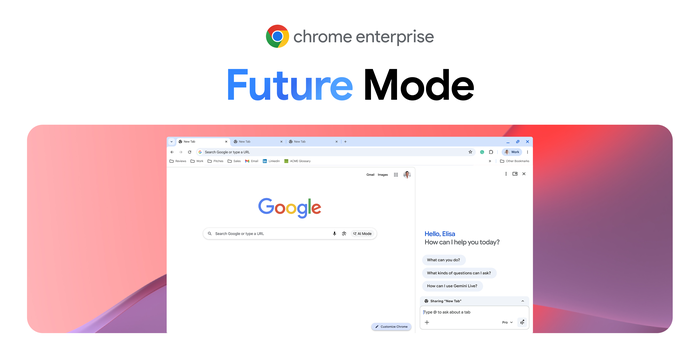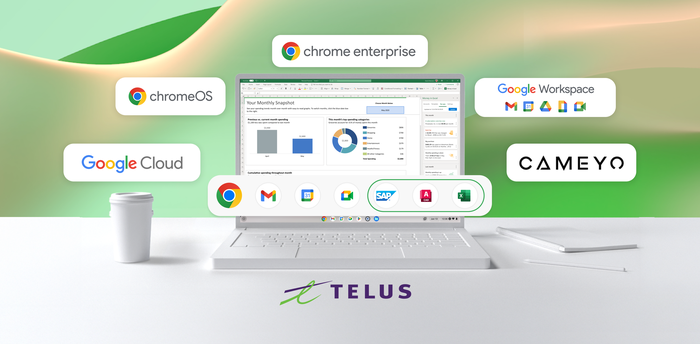Harris County Public Library connects communities with Chrome OS

Megan LeMaster
Division Director for Research and Development, Harris County Public Library
Ty Beachamp
Division Director for Information Technology, Harris County Public Library
Try ChromeOS Flex
Modernize your PCs and Macs with the cloud-first, fast, easy-to-manage, and secure operating system
DownloadEditor’s note: Today’s post is by Megan LeMaster, Division Director for Research and Development and Ty Beachamp, Division Director for Information Technology, Harris County Public Library, which serves Harris County, Texas, including Houston. The library system launched HCPL Connected for Harris County residents, a community-wide internet connectivity campaign, providing 15,000 Chrome OS devices to underserved communities.
Harris County Public Library connects communities with Chrome OS
Libraries are in the business of checking things out, and at Harris County’s 26 libraries, it’s not just books. Among the 10 million items circulating yearly are audiobooks, tools, streaming videos–and now, Chrome OS devices and T-mobile hotspots.
Starting this month, patrons can borrow one of 15,000 Dell Chromebook 3100 2-in-1 devices. Our new “Harris County Connected” campaign will help people without computers or internet service gain access to library resources, learn and work remotely, or help close the digital divide. Behind the scenes, we don’t need to do much to keep the devices safe and patrons’ online browsing secure, thanks to tools in Chrome OS.
Chromebooks are allowing us to expand the footprint of our ‘Harris County Connected’ program and bring internet access to many more people.
Christopher Peters, IT Business Analyst, Harris County Public Library
Searching for affordable devices that don’t skimp on features
Harris County is one of the most diverse counties in the United States–there are at least 145 languages spoken here. Along with diversity comes disparities from one branch and its patrons to another, especially in terms of access to online resources. We’re always on the lookout for innovative ways to address these challenges. When we were awarded a $30 million grant under the U.S. FCC’s Emergency Connectivity Fund (part of the American Rescue Plan Act) to provide critical online resources to students and library patrons, it was the perfect opportunity to help even out disparate access to online resources.
With the grant approved, we had big decisions to make. What kind of devices would be easy to use but high-performance enough to handle the demands of remote work and learning? How do we provide access to the most people? And how will we manage all of those devices with only about 10 IT team members, most of whom are already busy in the field?
The answers led us to Dell Chromebook 3100 2-in-1 devices with Chrome OS. The Chromebooks checked off several boxes for us. The security of Chrome OS complied with the FCC's Children's Internet Protection Act which keeps internet browsing safe for kids. We wanted devices that were as full-featured as possible–for example, equipped with webcams that worked well for remote learning and job interviews. Chrome OS devices enabled HCPL to expand the program to twice as many patrons as we could have through other technology options. We were able to buy 15,000 Chromebooks from CDW Government, along with 40,000 T-Mobile 5G MiFi hotspots.
Easy device setup and security
Buying 15,000 Chromebooks for library patrons to check out of branches was incredibly exciting–but also a bit scary. We worried how we could set up so many devices safely for repeated borrowing by patrons, keep track and manage the Chromebooks, and help patrons who need tech support.
We breathed giant sighs of relief when we realized that the CDW Government branch would handle device setup. Through CDW Governments reseller services, they applied asset barcodes to each device. We’re using managed guest sessions with Chrome OS, which don’t require patrons to log in to start using their Chrome OS devices. They can access their web-based software like they usually do.
With the Google Admin console, we remotely deployed Deep Freeze software for all of our managed Chromebooks. Every time patrons log off of their borrowed Chromebooks, all personal data is removed, keeping online browsing safe for the next patron who uses that Chromebook.
The Google Admin console also helps us share useful web links with patrons on the Chromebook landing page. We added bookmarks to sites that explain the basics of using a Chromebook and how to do research online. We also share a link to a YouTube channel with how-to videos, along with links to library resources like Storytime events. All of this can be done remotely because of the Google Admin console.
An expanded footprint for online access
Since the dawn of the internet in the mid-1990s, our libraries have been providing connections to the unconnected, starting with desktop computers in our branches for everyone to use. Chromebooks are allowing us to expand the footprint of our “Harris County Connected” program and bring internet access to many more people. We’re looking forward to seeing how library patrons are benefiting from their Chrome OS devices over the next several months.
The authors thank Christopher Peters, IT Business Analyst, Harris County Public Library, for his contribution to this post.



